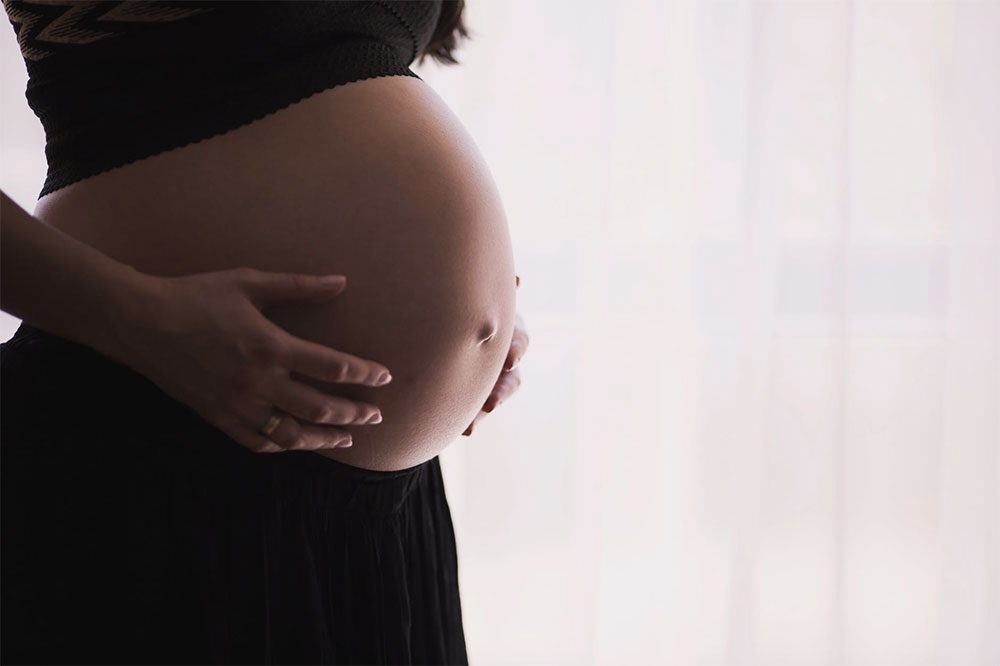Excerpt from book “OH BABY… Birth, Babies & Motherhood Uncensored”
Post Traumatic Stress Disorder (PTSD)
I don’t believe most of the risk factors individually would tip so many women over the edge. But add them up: the low status we assign to mothering; the high value Western cultures place on a girlish figure; the isolation of today’s nuclear family; the workplace pressure that sends husbands away from home when their partners need them most; the absence of ritual that would allow the new mother to mourn her lost self; the trauma of Caesarean section or high-intervention birth . . . the surprise should not be how many new mothers are depressed . . . but, rather, how many, in spite of all this, do well.
Naomi Wolf — Misconceptions
When any person experiences, witnesses or participates in an overwhelming, emotionally traumatic event in their life that causes them to feel painful anguish, severe fright, petrified terror, and/or are in a critically life- threatening situation, PTSD is a normal psychological reaction. (In World War I and World War II it was called ‘shell shock’, then came the term ‘battle fatigue syndrome’.) That is why it is now recognised that addressing PTSD is a vital part of recovery for victims or survivors of all traumatic events, such as rape, serious car accidents, armed hostage hold-ups, natural disasters and terrorist bombings. Today the medical profession is geared up for handling the fall-out PTSD victims are likely to experience.
In our mothers’ and grandmothers’ days, women were more realistically aware that childbirth always involved dangers, and that things often don’t go perfectly. By comparison, modern mothers-to-be are usually taught that birth should be a ‘normal, natural, beautiful and positive’ experience. While that is true for many, all this focus on the (sometimes overly romanticised) perfect birth is almost setting mums up to feel immense disappointment when their birth experience was far from a majestic occasion.
So there is a grumbling starting to be heard that some existing antenatal classes can be unrealistically rosy and optimistic, and are failing to provide a realistic expectation of what labour can be like, by focusing on textbook births and skipping around common and serious complications.
Although things usually go well at the majority of births, there are a lot of little things which can and do go wrong. For perhaps one in 15 women, delivery can turn into a harrowing, shocking, or even intensely terrifying experience. It may end up being anything but natural or normal. For some women, such traumatic events can leave the psychological scars of PTSD. The effects of PTSD can linger for months or even years — and can also easily be misdiagnosed as the baby blues or postnatal depression.

Most common causes of a ‘traumatic vaginal delivery’
- Overworked staff who (unconsciously, for sure) manage in a hurried imper- sonal manner to make the mother feel as if she has lost all control over the future fate of her body, her baby and the birth — her instincts and the natural process of childbirth are left ignored, and she may feel like a piece of meat with a baby inside that needs to come out.
- Delivery problems, including lack of empathy, sensitivity, sympathy, emotional support, dignity and no one speaking quietly, calmly and clearly to the labouring mother.
- Invasive, obstetric dire-emergency procedures (rare life-on-the-line agonising minutes).
- The mother’s ‘natural childbirth experience’ has gone horribly wrong — she fears for her life and/or the life of her baby.
Mothers can also experience PTSD from intensely stressful traumatic pregnancies, and both they and fathers can experience PTSD when their brand new baby’s life hangs in the balance, and baby has to be transferred to NICU (neonatal intensive care unit) or SCBU (special care baby unit). Parents can have a desperate, unfulfilled need for explanations.
Specific Characteristic Symptoms Of PTSD
- Intrusion: memories of the trauma recur unexpectedly (like in the middle of washing the dishes). Suddenly an episode (called flashbacks) of vivid memories and painful emotions takes over the victim.
- Avoidance: at first, the person feels numb, has diminished emotions, but can complete their routines mechanically. Then they see-saw between this inability to feel and express emotions, and the flood of emotions during flashbacks. So they will avoid situations or activities that are reminders of the original traumatic event, in an effort to avoid worsening the symptoms. (Say like avoiding driving down the road where the hospital is, or avoiding visiting other new mothers in hospital.) There is an underlying inability to resolve their painful feelings, which commonly results in depression.
- Hyperarousal: person may become suddenly irritable or explosive, even when not provoked. Everyday stresses can send them over the edge, crying or panicking when, for example, a TV programme comes on featuring birth. They may have trouble concentrating, may develop insomnia, and may have startled reactions.
- Self-medication: in an effort to get rid of the painful flashbacks, loneliness and panic attacks, they may turn to alcohol or drugs.
What therapies help PTSD?
The following can all help:
- Counselling,
- Psychotherapy,
- A good psychiatrist,
- Sometimes medication, and
- a support group where someone who knows what it is like will listen to you.
Dealing with PTSD is necessary and it’s important that you act at a reasonable time to avoid its ill effects.















+ There are no comments
Add yours